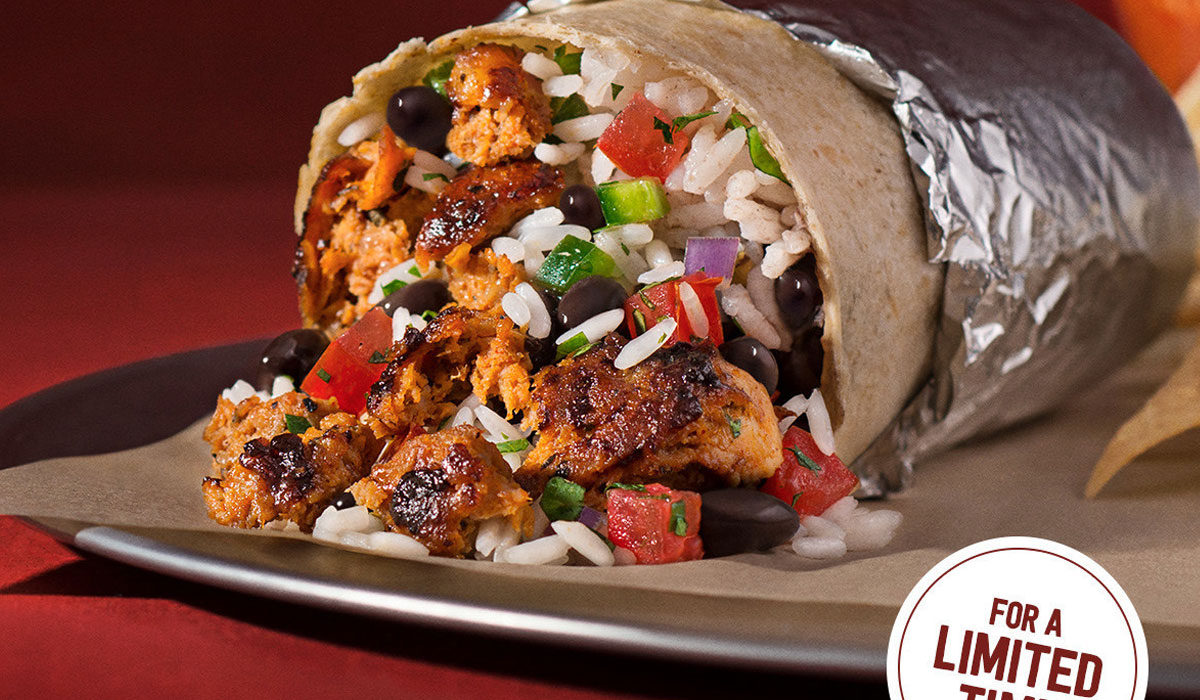Restaurants, with their cyclical, seasonal cycles and abundance of part-time staff, are no strangers to turnover. In August 2019, Black Box Intelligence reported quick-service brands were losing 100 percent of their workforce each year. Half of hourly front-of-house workers left within 90 days in 2018—a number on the rise from 43 percent in 2017. Figures were similar in the back of house.
In more recent months, however, there are front-line stories suggesting turnover rocketed even higher during the COVID recovery. Some 863,000 leisure and hospitality employees quit in February, representing 21 percent of the private sector—the most since November. Overall, nearly 48 million Americans left their jobs last year. This created a labor field with more than 11 million openings, or nearly two per unemployed worker. According to Q1 data from Joblist, more than 80 percent of respondents left a job without another one lined up. Only 10 percent of polled workers expected to last a year at their current post.
The industry tacked on 61,000 employees in March, per BLS statistics, bringing its total to roughly 11.54 million workers. Still, it’s 750,000 short of pre-COVID marks. In addition to a “labor shortage,” which was a pulsing topic ahead of the crisis, brands are increasingly losing workers not just to other restaurants and sectors, but to nothing at all.
In addition to menu price inflation hitting a new 40-year high in March, wage rates at restaurants are 11 percent higher, year-over-year.
What this signals is recruitment and retention isn’t just a wage and benefits game; it’s also about improving the quality of jobs inside restaurants. It’s one reason automation has picked up. In March, Chipotle announced it was testing “Chippy,” an autonomous kitchen assistant from Miso Robotics (the same company behind the fry-cooking robot, Flippy) that makes tortilla chips. “We are always exploring opportunities to enhance our employee and guest experience. Our goal is to drive efficiencies through collaborative robotics that will enable Chipotle’s crew members to focus on other tasks in the restaurant,” Curt Garner, Chipotle’s chief technology officer, said in a statement at the time.
Circling Chipotle in this labor conversation, the company on Friday released its annual sustainability report, which pulled the curtain back on what’s taking shape industry-wide.
Turnover rates
2021:
- Restaurant hourly (crew, kitchen manager, service manager): 194 percent
- Restaurant salary (apprentice, GM, restaurateur): 43 percent
- Restaurant field managers (field leaders, team directors, regional VPs): 21 percent
- Staff employees (support center and field support): 21 percent
2020:
- Restaurant hourly: 141 percent
- Restaurant salary: 31 percent
- Restaurant field managers: 16 percent
- Staff employees: 12 percent
Going back to 2018:
- Restaurant hourly: 144 percent
- Restaurant salary: 49.1 percent
- Restaurant field managers: 26.3 percent
- Staff employees: 49.9 percent
2017:
- Restaurant hourly: 158 percent
- Restaurant salary: 37.1 percent
- Restaurant field managers: 18.7 percent
- Staff employees: 23.9 percent
2016:
- Restaurant hourly: 130.1 percent
- Restaurant salary: 38.1 percent
- Staff employees: 19.8 percent
Chipotle made clear progress on that hourly line before the hurdles of 2021, a year that sent the figure more than 50 percentage points higher.
Chipotle said Friday, “like most companies, we experienced higher than normal turnover in 2021 and we are working hard to normalize these numbers.”
The brand asks people leaders to conduct performance conversations with each employee they oversee four times per year. And, at a minimum, workers are given at least a week of notice before a change is made to their schedules (the brand tries to make that two weeks, if possible).
Before diving into how nuanced employee care has become for Chipotle, here’s how compensation within the company breaks down (base pay and bonuses, plus benefits):
- Crew (full time): $40,700
- Kitchen manager: $45,500
- Service manager: $48,600
- Apprentice: $65,500
- GM: $86,100
- Certified training manager: $103,900
- Restaurateur: $108,800
Broadly, Chipotle’s turnover rates are a sign of the disruption at hand. “We’re working to improve every stage of the employee life cycle,” the company said. “By enhancing the candidate experience, onboarding, and training, we are poised to improve retention. We know if we can set our employees up for success early on, we can improve the guest and employee experience, as well as other key metrics.”
What Chipotle is doing
Chipotle boosted its employee offerings last year on the wage front (average hourly wages climbed to $15 in May), added referral bonuses, and spent time refining pathways for advancement. Crew members can now become “restaurateurs,” which is what Chipotle calls its highest GM role, in as little as three and half years. If they get there, earning potential hikes to $100,000.
This past year, 90 percent of restaurant management roles at Chipotle came from internal promotions. On average, six employees were promoted per restaurant for a total of nearly 19,000. Its internal promotion rate was 77 percent for apprentice and GM roles in 2021.
READ MORE: Chipotle is Headed to a Small Town Near You
Chipotle recently launched “Emerging Leader and Mentoring” programs to create a diverse pool of “ready now” internal talent for key roles, it said. Chipotle currently has 45 “Emerging Leaders” identified.
The company also extended its “Cultivate Education” program where qualifying U.S. employees can earn a debt-free degree in more than 100 disciplines at 10 universities. Up next are more HBCUs and professional certification tracks. That joined Chipotle’s existing $5,250 per year tuition assistance benefit valid toward any accredited program or certification. About 5,000 employees took advantage of Cultivate Education in 2021, with Chipotle paying over $15 million in tuition support.
The year prior, more than 4,400 employees received over $13 million in tuition assistance
Chipotle offers access to a personal education coach, tuition discounts, college credits for on-the-job training, and access to degrees in business and technology. It also provides assistance for employees’ immediate family members completing designated English as a Second Language and general education courses.
Additionally, Chipotle rolled a new learning management system, “The Spice Hub,” where employees tap learning development and up-skilling through gamification, social learning, personalized learning paths, and instructor-led training.
The company offers free and confidential Employee Assistance Program (EAP) services to all workers as well. Employees and dependents can speak with licensed counselors at no cost.
Today, Chipotle’s benefits include mental health, financial, and physical wellbeing including providing preventive healthcare for all employees through Telemedicine.
All part-time and full-time employees, spouses, and dependents are eligible for health insurance as of the first of the month following 30 days from their date of hire. This includes medical, dental, and vision plans.
Chipotle employees have access to HealthAdvocate, an advocacy service enabled by technology, at no cost, too. The company added this service, it said, with the aim of making healthcare accessible to all employees.
Chipotle supplies paid parental leave for restaurant support center and eligible field employees up to 12 weeks for birth moms and four weeks for new dads and individuals adopting children. It offers short-term disability insurance for birth mothers that covers 60 percent of an employee’s pay (up to $2,500 a week). Chipotle also covers costs for nursing mothers to use breastmilk shipping services during work travel. In 2021, 467 people took parental leave, the company said: 73 percent were female and 27 percent male.
Also, every Chipotle employee is eligible to contribute to their retirement savings after 30 days of employment.
Some more benefits, at the hourly level:
- Discount programs that allow employees the chance to select from thousands of fitness centers and studios. These programs offer a variety of workout classes available anytime online.
- On-demand certificate programs to help Chipotle employees advance their careers in as little as eight weeks.
- 401(k) includes a company match of 100 percent on the first 3 percent of the compensation an employee contributes, and 50 percent on the next 2 percent of compensation an employee contributes. The match is available once the employee reaches 1,000 hours worked in a plan year. All funds are fully vested from day one.
- Eligible employees who have worked at Chipotle for at least 12 months can contribute a percentage of their base pay through payroll deductions in a stock purchase program. At the end of each quarter, those contributions are used to purchase whole and fractional shares of Chipotle stock at a discounted price.
- Every employee gets a free meal during their shift and 50 percent off when they’re not on the clock.
- Hourly workers can accrue paid vacation time after a year of employment. Parental leave eligible kitchen managers and service managers are given five days of paid parental leave following the birth of their child or the placement of a child in connection with adoption or foster care.
- Chipotle holds semi-annual performance reviews where crew, kitchen managers, and service managers are eligible to receive a merit increase after each review based on their performance and overall contribution to the restaurant. In 2021, Chipotle paid $37 million in bonuses.
- On that note, full-time crew, kitchen managers, and service managers (those who work more than 32 hours per week on average) who have been with the company for at least a year are eligible for a bonus every December. Those who have worked the full quarter at their restaurant will be eligible to receive an additional week of pay if their restaurant achieves predetermined performance metrics for that quarter
- The brand supplies company-paid basic life insurance to employees, spouses, and children and short-term disability benefits in case of an illness or non-work-related injury to all kitchen managers and service Managers. Temporary or non-employee/contingent workers are not eligible for benefits.
In other statistics, Chipotle purchased 189.7 million pounds of chicken in 2021; 14.6 million pounds of pork; 84.3 million pounds of beef; 53.6 million pounds of sour cream; 88.2 million pounds of cheese 124 million pounds of avocados; 46.8 million pounds of bell peppers; and, overall, 380 million pounds of total produce, including 37 million pounds of local produce and 10.8 million pounds of organic produce.











